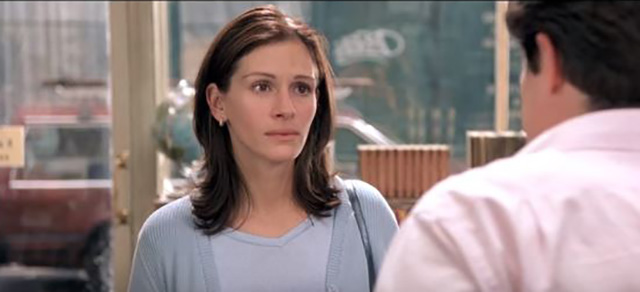We tend to see love as a feeling directed toward another person.
Surely, this must be the fullest of emotions.
This desire to give all of oneself away, freely, to the beloved—for the taking.
It’s easy to fall into the trap of thinking that if I love my partner, if I give them all of my affection, then I shall have attained true love. That by offering my most potent power, and my greatest gift to this one person only, that we will truly grow together.
But I have come to know that true love doesn’t work like this.
In the process of offering all that I am to my partner, I have found that love is a verb.
But to love my partner is only the first step.
If we want to feel and live love, we cannot love one person and leave it that. To do this means that our love is not deep enough, not true enough, and not free of conditions.
We may ask:
Why should I not limit my love, narrow my adoration, and promise my entire heart to the one I love?
Will that not keep it safe, will that not make it special?
There is a different perspective on love which is much more in alignment with our infinite potential for growth and for love.
I can love my partner deeply, until I find that the heart has no conditions to begin with, that love does not come from the mind, and so that love is not mine to give and direct—it is mine to choose.
Love is a verb.
Love is also an attitude.
I’m a lover, I engage in the act of love. More precisely, I engage in the act of uncovering the love that I am, and sharing it outward—letting it embrace another person. I am loving.
As the humanistic philosopher and psychoanalyst Erich Fromm writes in The Art of Loving, love is an act of productivity:
“Love isn’t something natural. Rather it requires discipline, concentration, patience, faith, and the overcoming of narcissism. It isn’t a feeling, it is a practice.”
If our love is limited to one person and we find it difficult to extend that beyond our relationship, to recognise it as an intrinsic part of ourselves, then the love we are engaging in is but a feeling limited to one “object;” it is a form of attachment.
The act of loving, on the other hand, sets into motion our intrinsic abilities to feel, to empathise, and appreciate the existence of another—unconditionally, objectively, and joyfully.
When love is nurtured by the act, then that love will spread outward wherever we go, and whomever we speak to.
What this means.
The responsibility to practice the art of loving falls on our shoulders.
Our ability to find love, share love, and rejoice in its sweetness does not depend on finding and loving that one person, and holding on to that love—but on finding the ability and the courage within ourselves to love in the face of uncertainty, and oriented toward the whole world.
If I have the ability to love, as well as the ability to choose my own conditions, then the broadness and the depth of my love reflects how mature I am as an individual.
How much responsibility do I take for my ability to love?
If I don’t take this responsibility, if I still see love as merely a feeling, then it’s time to ask myself:
Which wounds am I expecting to be nurtured?
Which unresolved desires do I suppress?
Which neglected sorrows and needs are limiting my ability to take responsibility for my loving nature?
To love truly means to love from the whole space of the heart, however, we must first unlock this space. This can only be done by taking responsibility for our ability to love, and the emotions that cover it. Unless we attempt to uncover and work with them, these emotions will sabotage or suppress any willingness to recognise love as an action.
The result is that we confuse the conditional feeling of love with true love—and in doing so, we relinquish the only possibility we have to practice the unconditional love—the greatest of our gifts.
We risk ending up living in a world where relationships may sometimes thrive, but true love between all fellow human beings remains a strange phenomenon, for no one has devoted their being to the act of love.
It’s time to overcome the belief we have come to take for granted: that if we love this one person fully, and completely, then we have given our lives meaning.
Meaning requires more than hopeful, receptive abandon. It requires heartfelt action—it requires the act of loving.
If I truly, deeply love my partner, and if he loves me as truly, our connection will open me deeper than I could have ever opened by myself. The devotional act of love grants me an energy, and nurtures a state of being that radiates outward.
When the heart is free to feel, and unafraid to be vulnerable and claim its strengths, it will learn to cast its love upon every being it touches.
Now let us ask ourselves, what is more sacred? What can be more fulfilling than to grow, to consciously create who we are until the day the beloved comes into our lives?
What is more courageous than to use our relationships, not as limited playgrounds for narcissistic or codependent love, but as a practice ground and a catalyst to our soul’s deepening, our heart’s opening, and our offering to the whole of life, to the whole of humanity?
If I love you truly, you shall not be the limit to my love.
You will be the partner, and together we may discover our own selves in a dance of two-bodied devotion, standing face-to-face with our deepest desires and truths, without ever turning away from the work we must do.
You will be the soulful mirror through which I will rise tall in the fullness of the love that I am.
Let our love open up to each other, that it may open us unconditionally.
Only this will bring us closer to one another.












Read 0 comments and reply